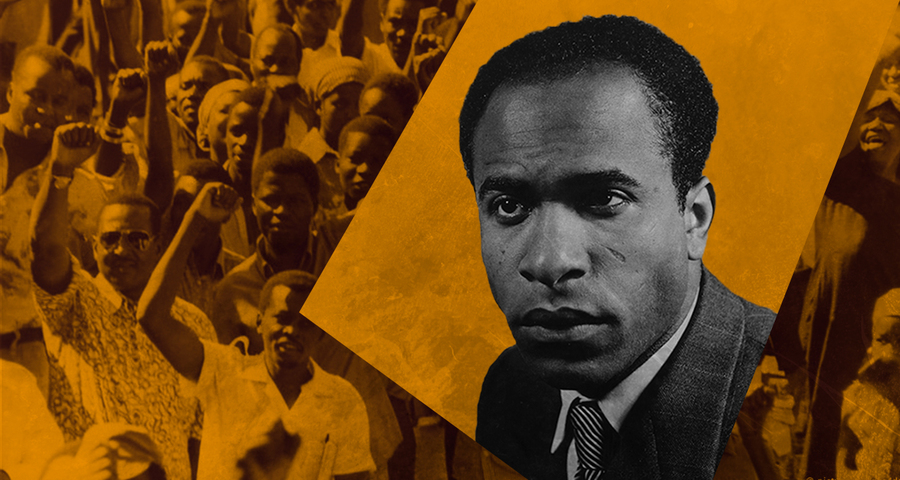Rizgar Gawrani
Frantz Fanon was born in 1925 on the French island of Martinique. Until World War II, the hardships and realities of life gave him a strong shock and awoke him. What war is and what it does to people. He has studied in many fields and his expertise in these fields has led him to study mental illness in detail. In a short time, he has revealed many facts to us through his writings, books, and activities. His most famous books are "Black Skin, White Masks" and "Global Diversity". He wrote his last book during his illness and died in 1961.
In recent years, research and discussions about the situation of slaves have increased dramatically. Although there are similarities in these situations, the oppression that Fanon describes in Global Diversity differs from the Kurdish situation in one aspect. These people have a country and a bigger and stronger country has taken their country by force. The real owners have become prisoners and slaves in their own country. But the world calls the country by the same name and usually says it is an occupied country. As Ismail Beshkchi often says, the Kurds are still under the control of these oppressive countries. The borders of our country are not clear and no one mentions our country even as an occupied country. Our country is not found in official documents or maps, and as we said, it is not even listed as an occupied country, so our situation is more different.
For a good and clear understanding of what I am talking about, I give a well-known example. Algeria, described by Fanon, was for a time occupied by France. Everyone knew the country and it had the same name and borders on the maps. That is why our Kurdistan does not appear on official maps and when someone says Kurdistan, they do not think of an occupied country.
In his book, Fanon writes many solutions to the example of Algeria and the occupied situation and the solution to this violation. He focuses on the villagers and talks about them a lot. "Rural people do not rely on cities. Someone who dresses like Europeans, speaks their language, sees them as cowards who have betrayed the national heritage. Urban people are traitors. Those who agree with the occupiers and do everything they can to succeed in the conditions of the occupying system. That's why we often hear urban immorality from rural people."
If all villagers were patriotic and anti-colonial, where did these spies come from? And again, unfortunately, this belief doesn’t fit his idea and it doesn’t fit our country. First, let’s take a look at the paradox. In Black Skin and White Masks, he describes the conditions and behavior of black people who see white people as superior, that is, the oppressed who see their oppressors as superior. In other words, the black or oppressed villagers here are more rebellious and never like spies or chiefs, and do not tolerate them at all. Even the children in their cradles are raised to fight the invaders. Children who grow up a little later learn the names and titles of all the revolutionaries. But in the other book we looked at the whites or the superiors and saw them as gods, but why do we hate them in this book?
Let's go to the second point:
Wherever the war started, resistance and national sentiment have increased. Of course, pain and suffering have increased accordingly. This also varied by geography. Where there were mountainous areas and fighters, more revolutionaries appeared and had more existence. That is, the villagers in those places are like the villagers of Fanon, but the villagers in the plains were not so active. Let me give an example from my family. Our village is in the Gawra Plain and the Plain is very apolitical. Our family is not aware of their identity and Kurdishness. Despite the state's oppression and brutality, they say the incident is due to the hostility of the villagers towards each other and they do not blame the state. But my mother is from a mountainous village. There was a lot of fighting in their village, many of them became fighters and my mother helped them a lot. Now my mother has a lot of knowledge and understanding of it, but my father's relatives are far from it.
Times and periods have changed, but our color remains black and dark. History did not allow us to become owners of a house, and we became slaves in our own homes. We heard stories from people with the same story, what they saw, and what they felt. What and how are liberty and disaster? But now it is clear that those stories and ideas do not fit us.









